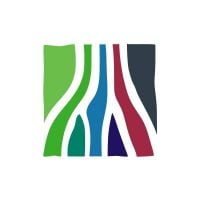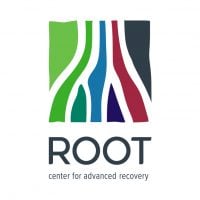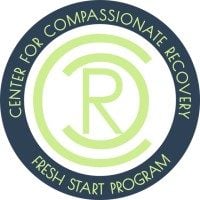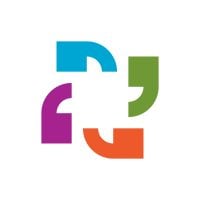
Child and Family Agency
Drug Rehab Center in Groton, Connecticut
- Mental Health
- Dual Diagnosis
Child and Family Agency in Groton, offering substance abuse treatment for adults, children, and adolescents through a multidisciplinary team of professional clinicians, utilizing evidence-based practices and medication-assisted therapies, with 24-hour medical support and a range of specialized services.
About Child and Family Agency in Connecticut
Child and Family Agency in Groton, Connecticut is a premier substance abuse provider, offering treatment for adults as well as for children and adolescents who are struggling with addiction or substance abuse issues. Its multidisciplinary team of professional clinicians, doctors, and addiction experts provide a comprehensive range of services, including individual counseling, family therapy, group therapy, relapse prevention, and aftercare services. Furthermore, the facility offers in-depth assessments and comprehensive evaluations in order to inform clients of their individual treatment needs and develop the best possible treatment plan for them.
At Child and Family Agency, the goal of addiction treatment is to help clients overcome the challenges of substance abuse, while providing support to the family in order to increase their chances of successful recovery. The treatment team utilizes evidence-based practices, such as Cognitive Behavioral Therapy, Dialectical Behavior Therapy, Motivational Interviewing and more, to decrease the chances of relapse and promote long-term recovery. Clients also have access to medication-assisted therapies and support groups to cope with cravings and withdrawal symptoms, as well as 24-hour round-the-clock medical support.
Child and Family Agency is accredited by The Joint Commission, and maintains a license from the State of Connecticut Department of Mental Health and Addiction Services. It is also recognized by the National Association of Addiction Treatment Providers as a top-rated treatment provider, and has won numerous awards from the Substance Abuse Mental Services Association for its excellence in treatment. In addition, Child and Family Agency offers an array of specialized services, such as court monitoring and advocacy, as well as legal advice.
Genders
Ages
Modality
Additional
Conditions and Issues Treated
Dual Diagnosis is a specific relationship between two or more disorders that have the same symptoms and can sometimes be treated together. This is used in the treatment planning process when dealing with drug addicts. Dual diagnosis can be viewed as a chronic medical condition that has comorbid psychiatric disorders.
Although addiction and a mental illness may have separate symptoms that are not easy to detect, they often go hand in hand. Many times, drug abuse is a direct result of the mental illness. In other words, treating the addiction will not resolve all of your issues. Unless you also treat the underlying mental illness, you will not be successful in achieving sobriety.
Levels of Care Offered
This center offers a variety of custom treatment tailored to individual recovery. Currently available are Dual-Diagnosis, Outpatient, with additional therapies available as listed below.
An outpatient treatment program is set up to help with alcohol or drug addiction, or a co-occurring disorder. The patient must attend the Connecticut facility for their therapy and other programs but are able to return home each night. The frequency of mandatory attendance decreases after much of Child and Family Agency‘s program is complete.
Therapies & Programs
Individual Therapy is a critical component of addiction recovery. Therapists work with patients to identify the root of their addiction and figure out how to better handle the issues that led to them using drugs. Individual Therapy is the one-on-one session where people meet with their therapist. Individual therapy provides a safe space for people to open up and discuss personal and sensitive topics which they may not feel comfortable discussing in a group setting.
Couples therapy at Child and Family Agency focuses on addiction treatment for the addict and their spouse. The addict’s family, not just the addict, can benefit from this form of therapy. Couples therapy addresses communication problems, trust issues, lack of intimacy, and abuse in intimate relationships. Couples therapy can help rebuild trust between partners, which increases the chances for successful treatment and sustained recovery.
Intimate relationships can be damaged during addiction, and professional help may be necessary to rebuild the often destroyed trust and love. Couples therapy at Child and Family Agency helps couples improve communication and rebuild trust. Either or both partners will be helped by this treatment administered by professionals. This treatment can also help one or both partners if addiction is the problem.
Family therapy will also help families realize that the addiction is not their fault. For many years, people blamed themselves for an addict’s behavior and felt that they had done something wrong. This is not the case. Addiction is a disease, and it can strike anyone, even if their life seems fine from the outside. It can bring a lot of shame to a family when they have an addict in their midst, but if everyone is open and honest with each other, then they can help everyone stay in recovery.
Group Therapy is utilized by drug treatment centers like Child and Family Agency to provide the recovering drug addict with a platform to talk about their feelings and experiences. It also provides for an opportunity to learn from other addicts who have successfully overcome their addiction.
Group Therapy is employed in lectures, seminars, or discussion groups (the latter two are typically conducted as “therapy groups”). It is recommended that all group members be recovering addicts for this type of therapy to work (though it does not exclude others with lived experience).
Trauma therapy is a clinical process that helps individuals deal with mental stress often caused by traumatic events. It is generally done for children, teenage victims of sexual assault, and war veterans. The therapist helps the person identify, understand and work through the problem. This is done with the help of talking about it in group or one-on-one counseling sessions. Therapists use relaxation, role-playing, art, and music to help the person open up about what is bothering them.
Dialectical Behavior Therapy (DBT) is used by drug treatment centers across the United States to help drug addicts become sober. DBT combines traditional behavioral treatments with elements from DBT, including dialectics, distress tolerance, and interlocking issues. It is commonly used to treat Borderline Personality Disorder (BPD) along with substance abuse disorders. The four DBT modules are mindfulness, interpersonal effectiveness, emotion regulation, and distress tolerance.
Cognitive behavioral therapy is also a popular service for individuals living with addiction. This type of supportive treatment uses both one-on-one counseling and group sessions to teach addicts how to identify thoughts, behaviors and emotions that might increase their risk of relapse.
These professionals can help addicts develop coping skills for managing stress, improving self-esteem and overcoming triggers. They might also use behavioral therapy to help addicts learn how to avoid cravings and warning signs that could lead them back into addiction.
Therapy can be used as a step-down from inpatient treatment or as the primary method of overcoming an addiction. No matter which option is best for the addict, they will teach important emotional coping techniques, which can make it easier for addicts to get through the tough days.
Patient Experience
Experiential Therapy at Child and Family Agency
Experiential therapy is another form of treatment that helps addicts overcome their addiction. This type of service typically involves hands-on activities with the focus on physical experiences instead of emotions or beliefs.
Some examples include art therapy, equine therapy and music therapy. Each of these forms of experiential therapy can provide unique ways for addicts to channel their feelings and work through their demons. This type of therapy also allows addicts to develop meaningful emotional connections with others, which can prevent them from resorting to relapse as a coping mechanism.
Payment Options Accepted
For specific insurance or payment methods please contact us.
Is your insurance accepted?
Ask an expert, call (888) 674-0062
Additional Details
Specifics, location, and helpful extra information.
Groton, Connecticut 6340 Phone Number(860) 449-8217 Meta DetailsUpdated November 25, 2023
Staff Verified
Child and Family Agency Patient Reviews
There are no reviews yet. Be the first one to write one.
Groton, Connecticut Addiction Information
Connecticut has a higher rate of substance abuse and addiction than the national average. The state ranks in the top 10 in the country for illicit drug dependence among those ages 18 to 25. In 2010, there were 9,211 people admitted to an alcohol treatment facility for alcohol abuse combined with a secondary drug. Connecticut ranked fifth in the United States of America for the number of fatalities involving drunk driving in 2014.
The statistics about drug or alcohol abuse and addiction in Groton, CT, are alarming. 7% of the population in Groton, CT, abuse drugs, and almost 17% of the population admit to binge drinking. Between 2010 and 2014, the number of people admitted to rehab for heroin addiction increased by 83%. The best drug treatment programs in Groton, CT, provide a combination of therapies and treatments that are tailored to the individual's needs.
Treatment in Nearby Cities
- Schenectady, CT (140.3 mi.)
- Torrington, CT (63.4 mi.)
- Bethel, CT (70.4 mi.)
- Plainfield, CT (24.4 mi.)
- Enfield, CT (52.1 mi.)
Centers near Child and Family Agency



The facility name, logo and brand are the property and registered trademarks of Child and Family Agency, and are being used for identification and informational purposes only. Use of these names, logos and brands shall not imply endorsement. RehabNow.org is not affiliated with or sponsored by Child and Family Agency.




